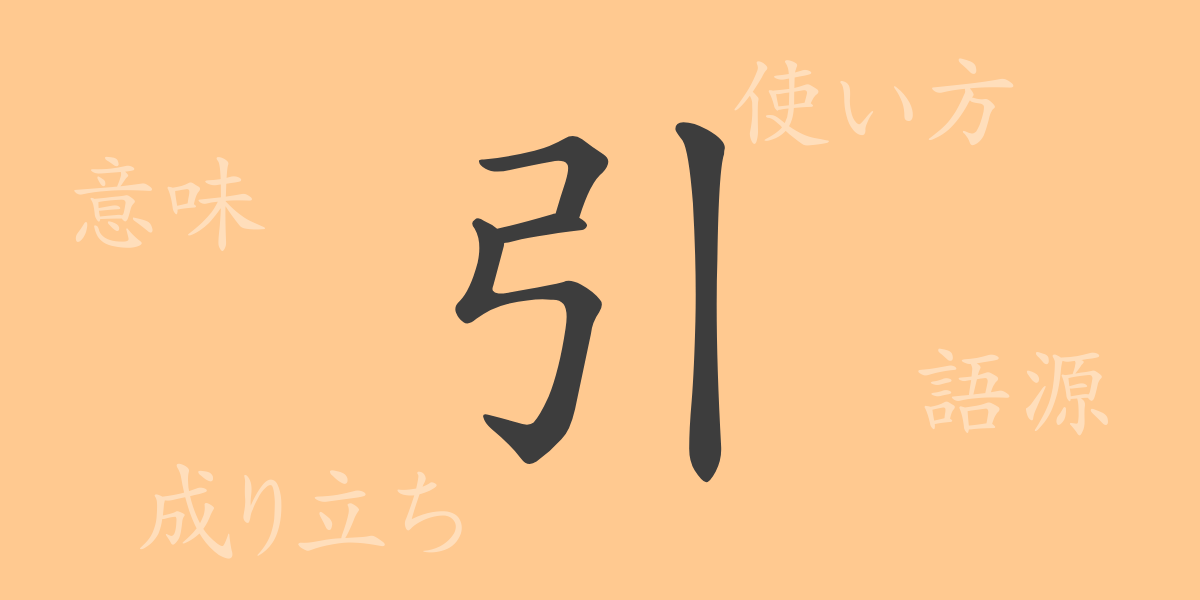“
The significance of each Kanji character is deeply rooted in its shape and history. The commonly used Japanese Kanji ‘引’ (Hiku), literally meaning to pull, enables a range of expressions from literal to metaphorical meanings. This article explores the etymology, modern usage, and the Kanji’s application in idioms and proverbs, unveiling the full scope of ‘引’.
Origins of 引 (Hiku)
The Kanji ‘引’ originates from ancient Chinese oracle bone scripts. Its form depicts the act of pulling a bow, illustrating that the character itself represents an action. Over time, the action of ‘pulling’ has evolved to not only signify physical acts but also abstract concepts.
Meaning and Usage of 引
‘引’ encompasses various meanings such as ‘to pull’, ‘to withdraw’, and ‘to retire’. Frequently used in everyday conversation, literature, and business contexts, this Kanji demonstrates the richness of expression in Japanese, reflecting its versatility in usage.
Readings, Stroke Count, and Radical of 引
The Kanji ‘引’ has a simple yet striking structure.
- Readings: On’yomi (Sino-Japanese reading) is ‘In’, kun’yomi (native Japanese readings) are ‘Hiku’, ‘Biku’, and ‘Hi-keru’.
- Stroke Count: 4 strokes.
- Radical: 弓部 (Yumihen) or bow radical.
Idioms, Phrases, and Proverbs Involving 引
There are numerous idioms and proverbs including ‘引’, each reflecting the depth of Japanese culture and language. For instance, ‘引き算’ (subtraction) is a basic mathematical operation, ‘引き継ぐ’ means to take over something, and ‘引き出し’ can refer to a physical drawer or metaphorically to drawing out someone’s abilities or potential. A proverb such as ‘引く手数(Suu)多’ describes a situation where many desire something or someone.
Conclusion on 引
The Kanji ‘引’ exemplifies the diversity and richness of expression in Japanese. Evolving from ancient pictographs to its current use, this character has been intimately involved in depicting both simple actions and complex emotions or concepts. The breadth of meanings held by ‘引’ truly showcases the power of language.
“

























